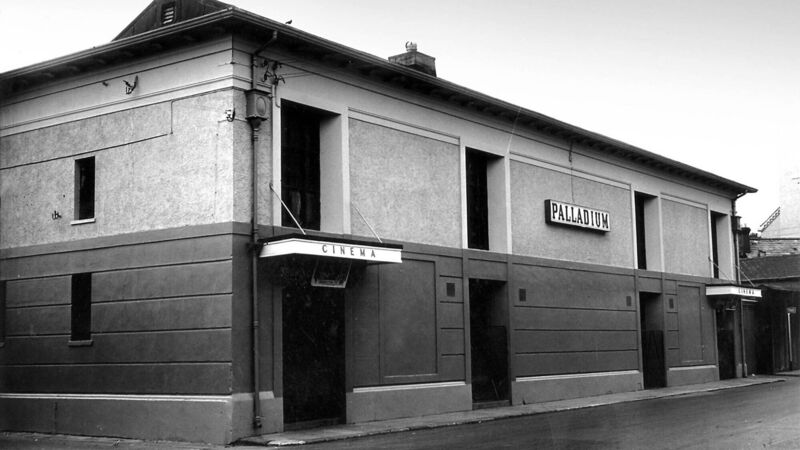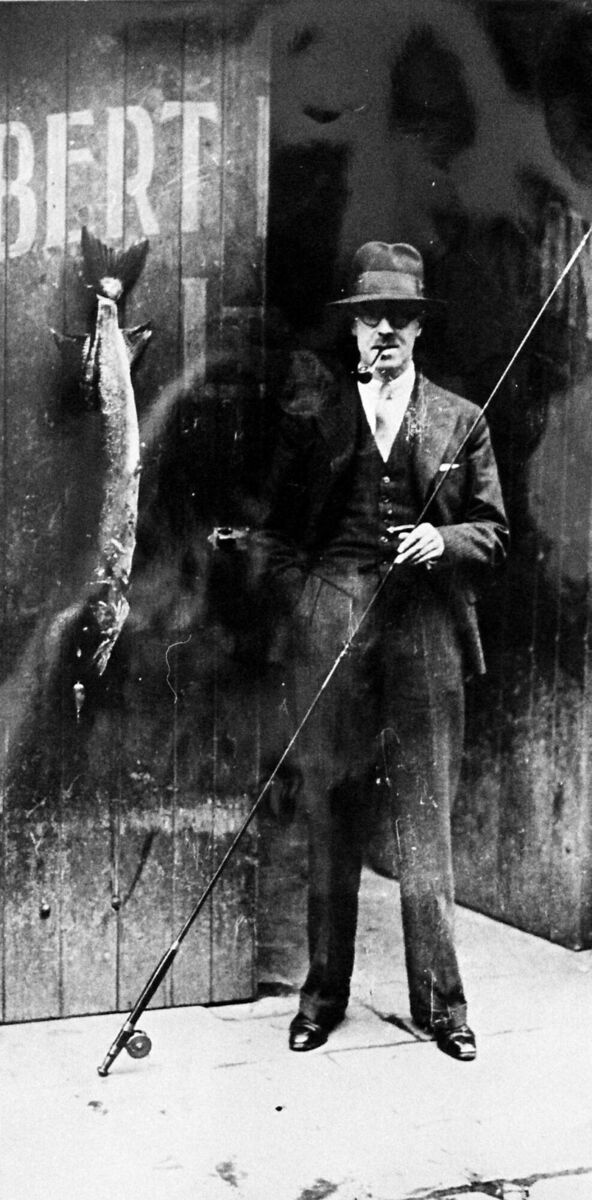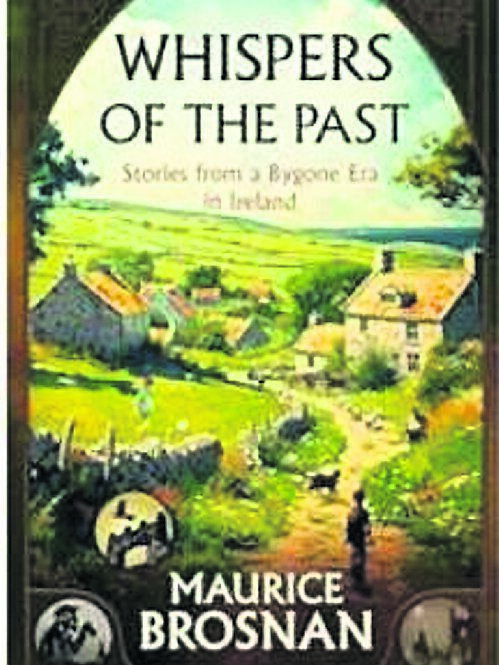Throwback Thursday: Trips to De Pictures... and school memories

The Palladium (formerly the Lido) cinema, in Blackpool, Cork in the early 1960s. Do any readers recall a projectionist there called Jackie Drummy?
Memories are long in Cork, and we continue to receive wonderful stories of the past from our correspondents.
Above all, going to De Pictures was such an important part of life back then, when we boasted... how many cinemas? The Savoy, the Pavilion, the Capitol, the Ritz, the Palace, the Lido, the Assembly Rooms, that place up near Collins’ Barracks that showed art films – what ones have we left out?
Throwback Thursday reader Mícheál Kenefick was one of those who enjoyed to the full the regular habit of going to the pictures, and has captured perfectly the joy and excitement of those long-gone days, before television, videos, and Netflix, made their appearance.
“Google is 26 years old now, and there is no doubt that the internet is a wonder,” said Micheál, “but for those of us of a certain vintage, it pales in comparison to the wonders and the thrills of going to The Pictures when we were young.
“We never said we were going to the cinema or to see a film - it was always going to The Pictures. We didn’t actually have a cinema in Whitegate, but we had the Bayview Hall (without a view of the bay, incidentally), and the Parochial Hall in Aghada as the two picture houses of our youth.
“A few rows of hard backless stools at the front, which cost 9d for the children, and slightly more comfortable chairs at the back, which cost the adults 1/3, was the standard lay-out.
“Of course, once the trailers and the ‘shorts’ were over, we kids would crawl carefully under the beam from the projector and sit on the rather more comfortable chairs further back, as there were always a few empty seats there.
“I can recall that same beam resembling a tunnel of smoke, as almost everybody puffed cigarettes during the performance. How things change! In today’s world that kind of thing is hard to believe or even imagine.
“We loved the shorts, though,” continues Micheál, “and especially if there was a serial like Ivanhoe or The Knights Of The Round Table. There would be an occasion when the same episode was shown two weeks in a row but we didn’t mind too much.
“We might then have five minutes of Pathe News. The cock would give a few crows and we would watch in awe events in places which only existed on a map or in our wildest dreams.
“A few minutes break then, while the reel was being changed, as the anticipation grew to fever pitch, and we were off with the main feature.
“The MGM lion would give a few growls or the lady who looked like the Statue of Liberty would appear. I’m still waiting for the Rank man without the shirt to give the gong a third lash.”
Of course, cowboys played a big role in the films of those days.
“We had a special grá for the cowboys and learned fascinating words like sheriff and posse to use in our games afterwards,” recalled Micheál.
“When the cowboys were besieged by the Indians, the soldiers always arrived in the nick of time, to loud roars from the young audience - ‘Here’s the Calvary’. (We had to grow up before we realised that not only were the Indians in fact the good guys, but that the correct word for the gun-toting militia was Cavalry.)

With money earned from picking spuds and periwinkles, we were next able to afford the bus to Midleton on Sunday evenings (if we flew out of Devotions before the final hymn from Vera and Danny Mac.) Hard seats, silent films, and black’n’white were a thing of the past at the Ormonde Cinema, and this era was the beginning of the end of our childhood. We might even have the odd fag and a packet of crisps. (Popcorn came much later, and whoever introduced it has a lot to answer for!)
“We would, before long, graduate to the city and the plush seats in the Capitol, Pavilion, Palace, and the jewel in the crown, the Savoy. Fred Bridgeman seated at his organ, rising from the pits like the phoenix from the ashes to entertain us first.
“A seat in the gods was like being in the top deck of the Hogan Stand in Croke Park, and how we loved it. We had the price of the tea in the same Savoy an odd time, and in our innocence we thought that there was nothing else in the whole world we would ever need.”
Yes, you evoke some great memories there, Mícheál. Hands up, those of the rest of you who recollect singing along to the words projected on to the screen, while ‘Fredge’ played the resounding backing. Ah, happy days.
And, coincidentally, we have heard from Australia, where a reader begs for information on the man who actually made those films roll, down at that great old cinema of childhood, the Lido in Blackpool.
“My name is Nicola Drummy, I was born and raised in Bishopstown until I was 10 and then we emigrated to Perth, Australia, in 1996 where my parents and my sisters still live, and are lucky enough to travel back home often to see family. I hope it’s OK that I reach out to you.
“I have been reading a lot of your Throwback Thursday articles, which are amazing, and I was wondering if you had any information to share from The Lido.
“My grandfather on my dad’s side was a projectionist at The Lido, his name was Jackie Drummy. He died in 1963, when my dad was only three. We don’t have many photos of him and hardly any memories from his time at The Lido, which my grandmother used to say he loved.
“I have been trying to find some stories or anything of interest so I can show my dad. He gets nostalgic around Christmas time and I would love to share any stories you may have gathered from The Lido.”
Well, come on now readers, you can’t resist a plea like that, can you?
Let’s hear your memories of the legendary Lido, and with luck, maybe some knowledge you can share on its projectionist, Jackie Drummy, who would have had the demanding technical task of ensuring the reels ran smoothly, that any unexpected breaks or faults were speedily dealt with, and that the audience got its money’s worth.
Of course, we have dealt with the Lido on these pages before, and have even proved the accuracy of the ‘tickets for jam jars’ legend, proving that it wasn’t just a Corkonian story but a record of the importance of recycling. Clean empty glass jam jars (the two pound ones were especially valuable) were handed in at the kiosk in exchange for tickets. The jars were brought down in bulk later to Ogilvie & Moore for refilling and redistributing.
No distinction was made between raspberry, strawberry, and blackcurrant, while presumably marmalade had the same value.
Now, we’ve been talking lately about the importance of recording your own memories and recollections of childhood, to pass on to the next generation, so that they will know there really were sixpenny bars, and street games. It’s all vital history, far more important to our minds than dry accounts of who won what war and why.
How people lived in days gone by is a neglected field and one that should be explored far more.
We spoke recently of Golden Days, Noel Dillon’s self-published book of memories from childhood holidays spent in Crosshaven, and commented how great it is to see people taking that extra step towards ensuring that their thoughts will live on. Now we have heard from Maurice Brosnan, who has similarly self-published Whispers Of The Past.
He explains: “It’s a collection of stories based on the time of my childhood in the 1960s. I was born and reared in Liscarroll in North Cork, though I’ve lived in Mallow for 40 years.
“One of six boys, I was educated at Liscarroll National School and then Buttevant Secondary School. I worked in the insurance business for 53 years, the last 30 as part of Brosnan Boylan Golden Ltd in Mallow.
“When I retired in 2022, I started writing a few stories. It came about by accident.
“Years ago, after my father’s funeral, the family and I were discussing old times. Do you remember this? Do you remember that? And of course someone said that it should really all be written down.
“That was 25 years ago and I wrote a story here and a story there with gaps of multiple years in between.

“When I retired in 2022, I went back to the half-completed stories, gave them a fresh look, and Whispers Of The Past was the result.”
The stories are not meant to be his own personal life, stresses Maurice, as the people in them are fictional.
“However, they are based firmly on the times in which I grew up, and the characters I met along the way, with bits of me thrown in.
“Listening to their stories, I came to appreciate that generation where nothing was easy, but there was dignity and honesty about people, with the odd, honest chancer thrown in.”
In that, Maurice has created a valuable record of how things used to be, what the basic rules of everyday life were, the customs, the traditions, and a way of life that has now almost disappeared.
Here is a brief excerpt from one of those stories which really is based on Maurice’s own memories. It concerns the huge change from the familiarity of a local primary school to the terrors of a distant secondary:
“All good things come to an end, my teacher had said on my last day of National School. The saddest of all was the scattering of my classmates to the four winds. Some were fated to toil on small farms that would one day be theirs, others to serve as apprentices to local tradespeople, and some to continue their education at the technical school in the nearby town.
“My heart sank when my father returned home one day and announced that my further education was settled. He had just met with the principal of a secondary school notorious for its strict discipline and harsh corporal punishment. There I would begin my secondary education, hoping that six years down the road I’d emerge with the prospect of a decent job to set me up for life.”
So a new world began, where punishment was frequent, and the tricks of survival were quickly learned, along with dodges like playing truant.
Maurice’s account of schooldays must strike a chord in many other readers’ memories.
He tells us that Whispers Of The Past is available on Amazon and also from Philip’s Bookshop in Kanturk and Eason O’Brien in Mallow. And the rest of you, get writing, and preserve your own priceless memories for future generations!
Tell us about them too. Email jokerrigan1@ gmail.com or leave a comment on our Facebook page: www.facebook.com/echolivecork.







 App?
App?


